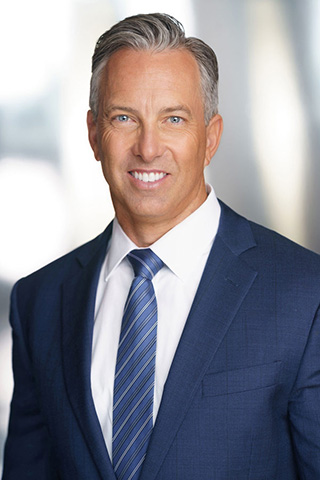Motorcycle accidents can be life-altering, leaving you with physical injuries, emotional distress, and a mountain of unexpected challenges. After such an event, it can feel overwhelming, but knowing what steps to take can make a significant difference in your recovery journey and your ability to secure fair compensation for your injuries.
If you or a loved one has been injured in a motorcycle crash, reach out to our experienced motorcycle accident attorneys at Wilshire Law Firm today.
Actions to Take After a Motorcycle Accident

Whether managing medical treatments, dealing with insurance companies, or seeking legal representation, here’s what to do after a motorcycle accident to protect your rights and set the foundation for a successful claim.
Prioritize Your Safety and Health
The first and most crucial step after a motorcycle accident is ensuring your safety and addressing immediate health concerns. If you can, move to a safe location away from traffic. Check yourself and others involved for injuries. Even if you feel okay, remember that some injuries, like concussions or internal bleeding, may not show symptoms right away. Getting checked out by a medical professional as soon as possible is essential.
- Call 911 Immediately: Contact emergency services to report the accident. Medical personnel can provide on-the-spot care, and the police will document the scene, creating an official report critical for your claim.
- Seek Medical Attention: Do not skip this step, even if your injuries seem minor. Some conditions worsen over time, and having a detailed medical record right after the accident will not only safeguard your health but also strengthen your case. Follow your doctor’s advice meticulously and attend all follow-up appointments to ensure a clear and continuous medical record of your injuries.
Document the Accident Scene
Accurate documentation of the accident scene is essential for your case. If you are physically able, gather as much evidence as possible before leaving the scene.
- Take Photos and Videos: Capture images of the accident site, including your motorcycle, any other vehicles involved, visible injuries, road conditions, traffic signs, and any other relevant details. Videos can provide context that photos alone might miss.
- Collect Witness Information: Witnesses can provide unbiased accounts of what happened. Gather their contact details and ask for a brief statement if possible. Their testimonies can be invaluable in proving fault and supporting your version of events.
- Exchange Information with the Other Parties: Obtain the names, contact information, insurance details, and vehicle descriptions of all drivers involved in the accident. Be courteous and factual, but avoid discussing fault or making statements that could be used against you later.
Report the Accident to Your Insurance Company
Notify your insurance provider about the accident as soon as you can. Be factual and honest, but stick to the basics. Insurance adjusters may seem friendly, but their job is to minimize payouts, not to protect your interests. Avoid speculating about the accident or your injuries when speaking with them, and never admit fault.
- Be Cautious with Insurance Adjusters: You are not obligated to provide a recorded statement or accept the first settlement offer. Insurance companies often propose lowball offers, hoping you’ll accept quickly. Remember, their goal is to settle your claim for the least amount of money. It’s in your best interest to consult a lawyer before engaging in detailed conversations with any insurance representatives.
Keep a Detailed Record of Your Recovery
After an accident, your recovery journey becomes a critical part of your personal injury claim. A well-documented recovery process not only provides evidence of your injuries but also highlights the emotional, physical, and financial toll of the accident.
- Maintain a Personal Injury Journal: Document your pain levels, symptoms, and emotional state daily. Record how your injuries affect your daily life, including missed workdays, lost opportunities, and changes in your ability to enjoy your usual activities. These personal insights can significantly strengthen your case by providing a clear picture of your suffering.
- Keep Track of All Medical Expenses: Save all medical bills, receipts, prescriptions, and records of any other out-of-pocket expenses related to your injuries. This includes travel costs for medical appointments, physical therapy, medical devices, and any home modifications you need due to your injuries.
Avoid Discussing the Accident on Social Media
Social media can be a double-edged sword after an accident. While it may be tempting to share your experience, doing so can severely impact your claim. Insurance companies and opposing parties often scour social media profiles looking for any posts, photos, or comments that could be used to undermine your case.
- Stay Off Social Media: Avoid posting about the accident, injuries, or recovery. Even seemingly innocent updates can be misconstrued and used against you. Adjust your privacy settings and be mindful of what your friends and family post on your behalf.
Understand Your Legal Rights
Motorcycle accident claims are often more complex than typical car accident cases. Bias against motorcyclists can play a role in how fault is determined, and insurance companies may try to exploit this bias to reduce your compensation. Understanding your legal rights and how the claims process works can give you a significant advantage.
- Know the Statute of Limitations: In California, you typically have two years from the date of the accident to file a personal injury lawsuit. However, acting sooner rather than later is always the best course of action. Evidence can be lost, memories can fade, and the sooner you start the process, the stronger your case will be.
- Be Aware of Comparative Fault Rules: California follows a “pure comparative negligence” rule, meaning that your percentage of fault can reduce your compensation. For example, if you are found to be 20% at fault for the accident, your compensation will be reduced by 20%. A skilled attorney will work to minimize your fault percentage, ensuring you receive the maximum compensation possible.
Seek Legal Representation
Handling a motorcycle accident claim can be daunting, but you don’t have to do it alone. Hiring an experienced motorcycle accident lawyer can significantly improve your chances of a successful outcome. They will handle all communications with insurance companies, negotiate on your behalf, and, if necessary, take your case to court.
- Why Legal Representation Matters: A dedicated attorney will fight tirelessly to ensure you receive the compensation you deserve for medical expenses, lost wages, pain and suffering, and other damages. They will leverage their legal knowledge to challenge any attempts by insurance companies to downplay your injuries or assign you undue fault.
What an Attorney Will Do for You:
- Investigate the Accident Thoroughly: Your attorney will gather crucial evidence, including police reports, witness statements, and expert testimonies.
- Calculate Your Full Damages: They will ensure that all your losses are accounted for, including future medical expenses and the emotional impact of the accident.
- Negotiate Aggressively with Insurers: With a strong advocate in your corner, you won’t have to worry about unfair settlement offers or manipulative tactics from insurance adjusters.
Common Challenges for Motorcycle Accident Victims
Motorcycle accident victims often face unique challenges in their pursuit of justice and fair compensation:
Bias Against Motorcyclists
Unfortunately, there’s often an unfair bias against motorcyclists, with some people assuming riders are reckless or at fault in accidents. This bias can affect insurance negotiations and legal proceedings. Having strong evidence and representation is crucial to counter these unfounded prejudices.
Severity of Injuries
Motorcycle accidents often result in more severe injuries compared to car accidents due to the lack of protective barriers. This can lead to higher medical bills, longer recovery times, and more significant impacts on your life. Ensuring you receive full and fair compensation for these extensive damages is vital.
Insurance Company Tactics
Insurance companies may use various tactics to minimize payouts, such as:
- Pressuring you to accept a quick, low settlement offer
- Disputing the severity of your injuries
- Arguing that your injuries were pre-existing
- Delaying the claims process
Having a knowledgeable advocate on your side can help you navigate these challenges and protect your interests.
Long-Term Considerations
The impact of a motorcycle accident can extend far beyond the immediate aftermath. Consider these long-term factors:
Ongoing Medical Care
Some injuries may require long-term or even lifelong medical care. It’s crucial to account for future medical expenses when seeking compensation. This may include:
- Physical therapy
- Occupational therapy
- Mental health counseling
- Future surgeries or treatments
Career Impact
A serious motorcycle accident can have lasting effects on your career. You may face:
- Extended time away from work
- Reduced earning capacity
- Need for vocational rehabilitation
- Career change due to physical limitations
These factors should be considered when evaluating the full impact of the accident on your life.
Lifestyle Changes
Severe injuries can necessitate significant lifestyle changes. You may need to:
- Modify your home for accessibility
- Hire assistance for daily tasks
- Give up beloved hobbies or activities
These changes can have both financial and emotional costs that should be accounted for in any settlement or lawsuit.
Compensation Available to Motorcycle Accident Victims

Motorcycle accidents often lead to severe injuries, costly medical bills, and significant disruptions to daily life. As a victim, you have the right to seek compensation for the damages you’ve suffered. Some types of compensation that motorcycle accident victims may be entitled to pursue include:
Medical Expenses
Medical bills can pile up quickly after a motorcycle accident, covering everything from emergency room visits and surgeries to ongoing treatments and rehabilitation. This includes current medical bills and future medical expenses if your injuries require long-term care.
Lost Income and Loss of Earning Capacity
Motorcycle accidents can force you out of work, leading to lost income and financial strain. Compensation in this category addresses reimbursement for the time you were unable to work due to your injuries.
If your injuries prevent you from returning to your previous job or limit your ability to work in the future, you may be entitled to compensation for lost future earnings. You may also be eligible for compensation for missed promotions, bonuses, or other work-related benefits affected by your accident.
Pain and Suffering
Motorcycle accidents often cause more than just physical injuries—they leave a lasting impact on your mental and emotional well-being. Compensation for pain and suffering includes:
- Physical pain
- Emotional distress
- Loss of enjoyment of life
Property Damage
Your motorcycle and any personal belongings damaged in the accident are also covered under property damage compensation. This category can include repairs needed to restore your motorcycle or, if it’s a total loss, reimbursement for the fair market value and costs for helmets, riding gear, electronics, or any other personal items damaged during the accident.
Wrongful Death
Tragically, motorcycle accidents can result in the loss of life. When a loved one is taken away due to another party’s negligence or recklessness, the surviving family members may pursue a wrongful death claim. Compensation in wrongful death cases aims to provide financial support and recognize the emotional toll that the loss has on the family.
Pursuing a wrongful death claim not only seeks to alleviate the financial burdens placed on your family but also serves as a powerful means to hold the responsible party accountable for their actions. While no amount of compensation can truly replace your loss, it can provide some measure of stability and justice during an incredibly difficult time.
Lawyers Provide Your Best Path to Recovery and Justice
The period following a motorcycle accident is undoubtedly challenging, but by taking these steps, you empower yourself and set the stage for a full recovery. Remember, you are not alone in this journey. At Wilshire Law Firm, we are here to provide the relentless, compassionate, and assertive legal representation you need. With a proven track record of securing over $1 billion in compensation for our clients, we will fight for your right to justice and the full recovery you deserve.
Get Justice, Get Paid. Contact Wilshire Law Firm today at (213) 335-2402 or through our online form for a free consultation with our experienced personal injury lawyer. We will be with you through the entire process, ensuring your voice is heard, your rights are protected, and your future is secured.










